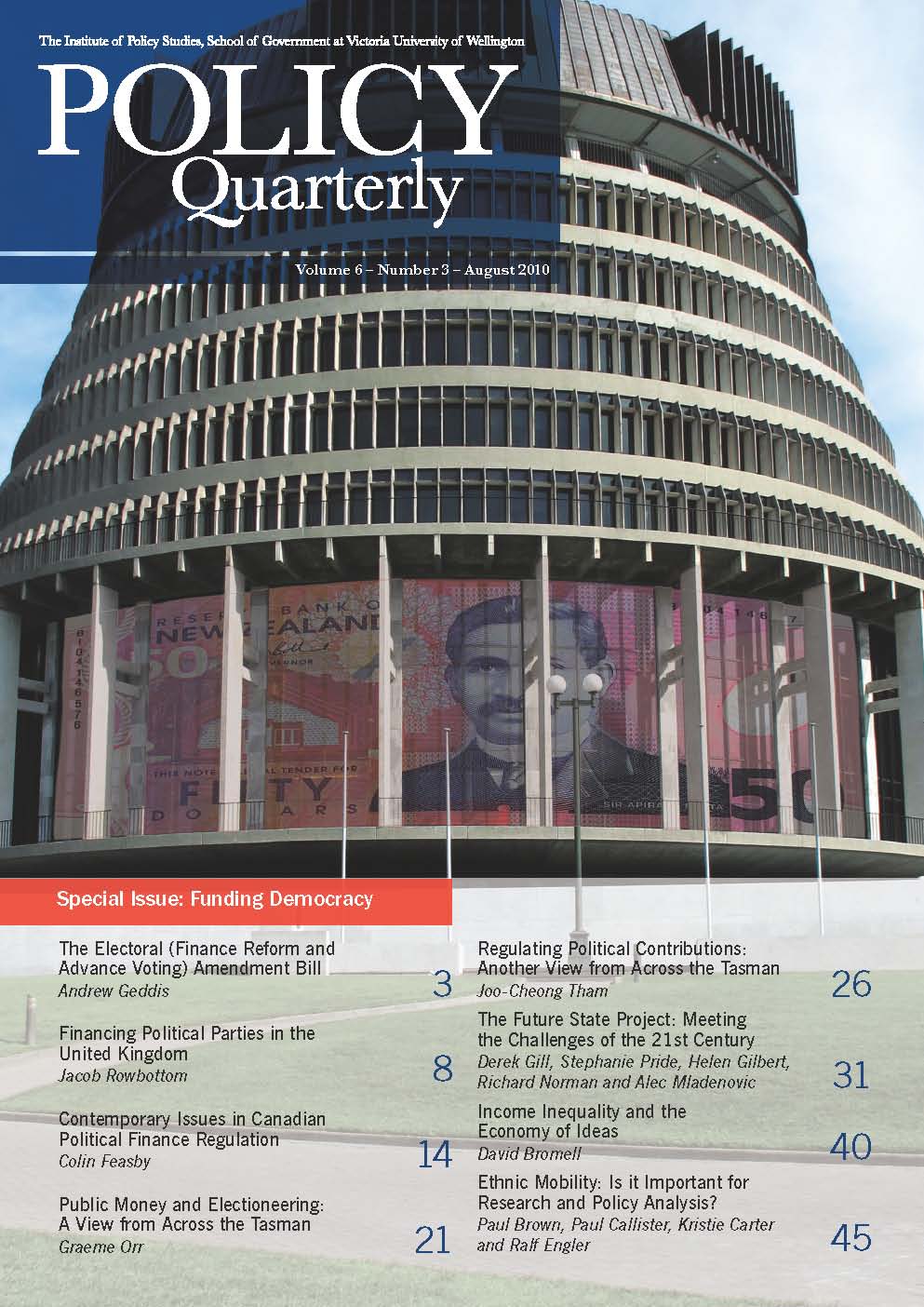Financing political parties in the United Kingdom
DOI:
https://doi.org/10.26686/pq.v6i3.4338Keywords:
Conservative/Liberal Democrat coalition, money in politics, Political Parties, Elections and Referendums Act 2000 (PPERA), spending control, Electoral Commission, Third-partyAbstract
Shortly after the 2010 general election in the United Kingdom, the new Conservative/Liberal Democrat coalition government promised to reform the way British political parties are financed and ‘to remove big money from politics’. Such promises are not new, and in the last decade there has been no shortage of legislative action on party funding. The problem has been that the laws failed to address some of the biggest concerns about money in politics, and that the political actors found strategies to avoid the controls. Looking at the UK approach, this article aims to give an overview of the controls in place, while highlighting some of the main difficulties experienced. While the UK laws have some differences compared with those proposed in New Zealand (particularly in relation to third-party activity), there is much common ground and the British experience may offer some lessons and show some of the pitfalls in regulating political finance.
Downloads
Downloads
Published
Issue
Section
License
Permission: In the interest of promoting debate and wider dissemination, the IGPS encourages use of all or part of the articles appearing in PQ, where there is no element of commercial gain. Appropriate acknowledgement of both author and source should be made in all cases. Please direct requests for permission to reprint articles from this publication to Policy-Quarterly@vuw.ac.nz.



